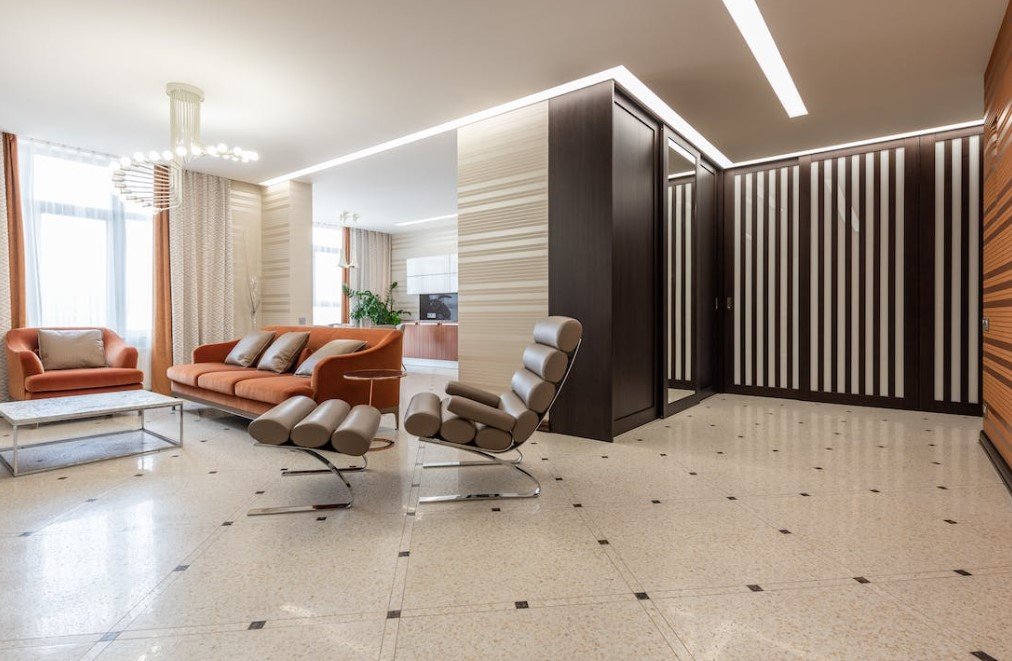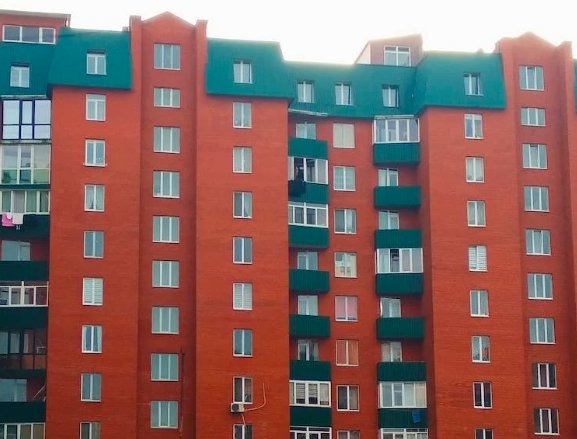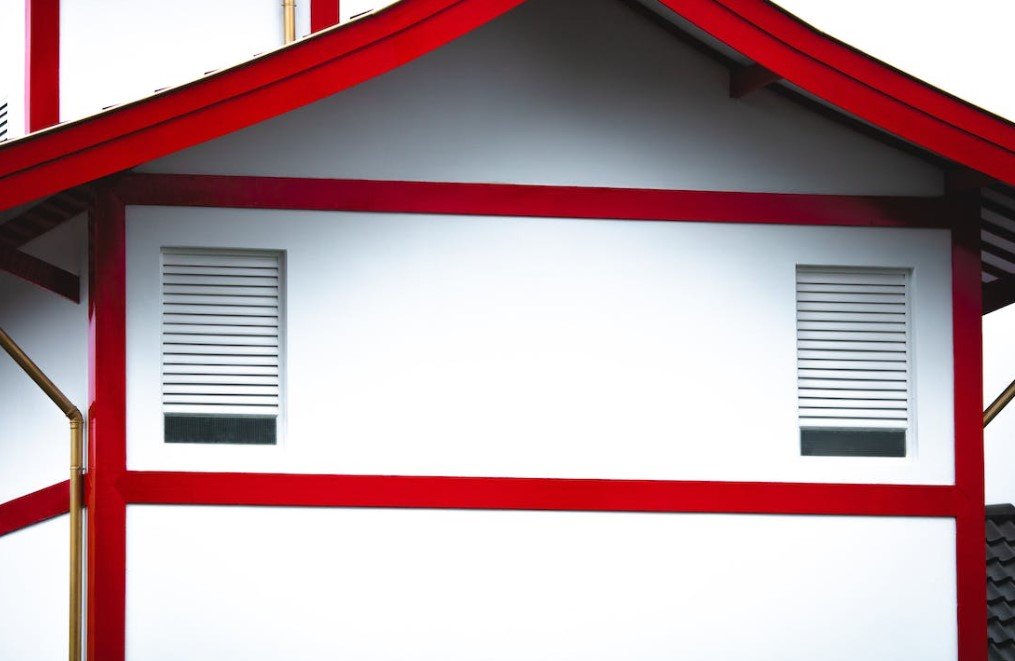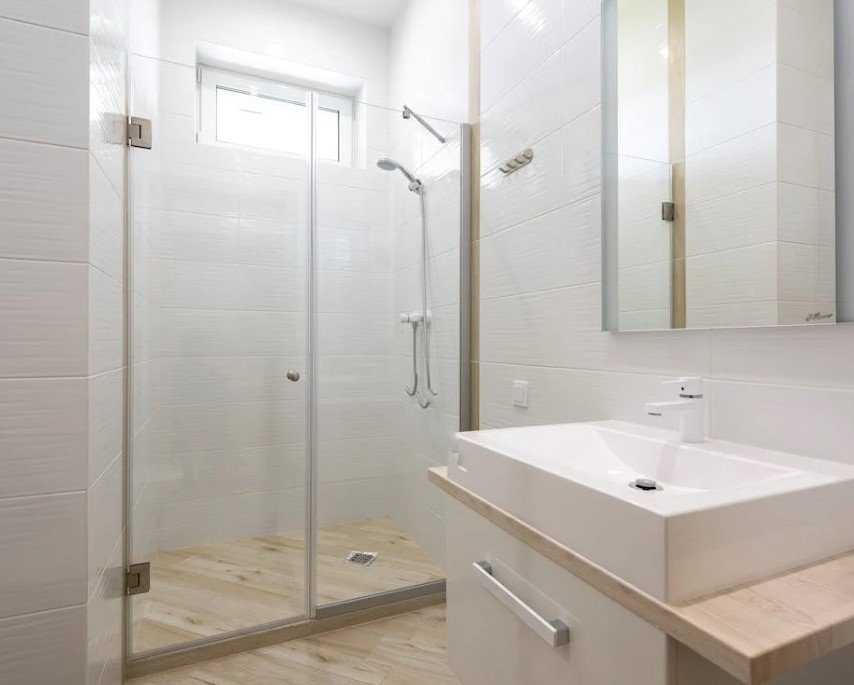Vinyl tile flooring has been gaining popularity as an affordable and durable option for homes. It is a type of synthetic flooring that is made of layers of PVC (polyvinyl chloride) and can be designed to imitate different materials like wood, stone, or ceramic tiles. This type of flooring is usually installed in kitchens, bathrooms, and other high-traffic areas that require easy maintenance and resilience to wear and tear.
One of the main benefits of vinyl tile flooring is its affordability. It is one of the most cost-effective options for homeowners who want a stylish and long-lasting flooring solution without breaking the bank. Moreover, vinyl tiles are easy to install, often requiring no adhesives or grout, which can save on installation costs. They are also fairly easy to maintain and clean, making them a convenient option for busy households.

The purpose of this article is to provide readers with a comprehensive guide on vinyl tile flooring, from its characteristics and benefits to its maintenance and installation. Whether you are a homeowner looking for a budget-friendly and durable flooring option or a DIY enthusiast who wants to learn more about vinyl tiles, this article will give you the information you need to make an informed decision.
Affordable Flooring
A. Explanation of Vinyl Tile Flooring’s Affordability
Vinyl tile flooring is a popular choice among homeowners who are looking for affordable flooring options that are also durable and easy to maintain. Vinyl tile flooring is typically made from polyvinyl chloride (PVC) compounds, which are relatively inexpensive compared to other types of flooring materials. This makes vinyl tile flooring an affordable option for homeowners who are on a tight budget but still want to update their home’s flooring.
B. Comparison of Vinyl Tile Flooring Prices to Other Flooring Options
Compared to other flooring options, vinyl tile flooring is generally more affordable. For example, hardwood flooring can cost anywhere from $8 to $15 per square foot, while luxury vinyl tile flooring can cost anywhere from $3 to $8 per square foot. Similarly, ceramic or porcelain tile can cost anywhere from $5 to $15 per square foot, while vinyl tile flooring typically costs around $1 to $4 per square foot.
C. Long-Term Cost-Effectiveness of Vinyl Tile Flooring
In addition to being cost-effective initially, vinyl tile flooring is also cost-effective in the long run. This is because vinyl tile flooring is highly durable and can last for many years with minimal maintenance. Vinyl tile flooring is also resistant to water, stains, and scratches, which makes it an ideal option for high-traffic areas and homes with kids and pets. Additionally, vinyl tile flooring is easy to clean and does not require any special cleaning products or techniques, which can save homeowners money over time.
Durable Flooring
A. Explanation of Vinyl Tile Flooring’s Durability:
Vinyl tile flooring is known for its durability. It is made of multiple layers, including a wear layer, a printed or decorative layer, and a backing layer. The wear layer is made of a hard substance that protects the floor from scratches, scuffs, and stains. The printed layer gives the vinyl flooring the desired look and texture. Meanwhile, the backing layer provides support to the flooring and helps resist moisture.
In addition, vinyl tile flooring is designed to withstand heavy foot traffic over the years. It can also withstand spills and stains, which makes it an ideal choice for high-traffic areas like kitchens, bathrooms, foyers, and mudrooms. Furthermore, it is also resistant to mold and mildew growth, which makes it a popular flooring option for households with allergen-sensitive occupants.
B. Comparison of Vinyl Tile Flooring Durability to Other Flooring Options:
When it comes to durable flooring options, vinyl tile flooring is a top choice. Other flooring options that are known for their durability include hardwood, ceramic tile, and stone flooring. While they all have their benefits, vinyl tile flooring has some advantages over these other options.
For example, hardwood floors are known for their durability, but they can scratch and dent over time. Ceramic tile and stone floors are also durable but can be expensive and difficult to install. On the other hand, vinyl tile flooring is less expensive, easier to install, and more durable under heavy foot traffic.
C. Discussion of Stress Tests Done on Vinyl Tile Flooring:
Vinyl tile flooring is subjected to multiple stress tests to ensure its durability. One type of test done on vinyl flooring is a rolling load test. This test measures the force it takes to damage the flooring’s surface when a rolling load is applied to it. Another test is an indentation test, which measures the pressure required to make a dent in the flooring. Additionally, impact resistance tests are done to measure the ability of the flooring to resist scratches and dents from heavy objects. Manufacturers also conduct tests to see how the flooring withstands water damage and UV light exposure.
All of these tests ensure that vinyl tile flooring will last for years and remain durable under various conditions. As a result, homeowners can rest easy knowing that their investment in vinyl flooring will be a long-lasting and practical choice for their home.
Home Improvement
A. Explanation of Vinyl Tile Flooring as a Home Improvement:
Vinyl tile flooring is an affordable and durable flooring option that has become a popular choice for homeowners who are looking for an easy and cost-effective home improvement project. Vinyl tile flooring is made from a type of plastic material called polyvinyl chloride (PVC). It is a versatile and practical flooring option that is available in various colors, patterns, and textures, making it easy to find a style that can fit any home’s design style.
One of the benefits of vinyl tile flooring is that it is relatively easy to install, which means that homeowners can save money by doing it themselves instead of hiring a professional. Additionally, because the flooring is waterproof, it is suitable for use in areas that are prone to moisture, like bathrooms, kitchens, and basements.
B. Discussion of How Vinyl Tile Flooring Can Add Value to a Home:
Vinyl tile flooring is an affordable home improvement option that can add value to a home. Unlike other flooring materials, vinyl tile flooring is easy to clean and maintain, which makes it an attractive option for potential homebuyers. Furthermore, vinyl tile flooring can be waterproof, which is a significant selling point for homeowners who are searching for a flooring option that can withstand moisture.
Another factor that can add value to a home is the style of the vinyl tile flooring. With so many design options available, homeowners can choose a design that complements the home’s existing aesthetic or gives it a fresh, modern look that will appeal to potential buyers.
C. Discussion of How Vinyl Tile Flooring Can Refresh an Outdated Home:
Vinyl tile flooring can be an excellent way to refresh an outdated home. If a home has old, worn-out carpets or outdated linoleum flooring, replacing it with vinyl tile can give the home an updated look without breaking the bank. Vinyl tile flooring can provide a fresh new look that is particularly suitable for modern homes.
Additionally, vinyl tile flooring comes in a variety of colors, patterns, and textures that can create a unique and attractive look. By choosing a flooring style that complements the home’s design elements or provides a bold, modern contrast, homeowners can create an entirely new look for their living space.
Flooring Options
A. Explanation of the Different Flooring Options Available:
There are numerous flooring options available in the market today, each with its unique characteristics, advantages, and disadvantages. Some popular flooring options include hardwood, carpet, laminate, tile, vinyl, and stone. Hardwood flooring gives a high-end and elegant look and is durable, but it is also expensive and requires maintenance. Carpet flooring is preferred for its comfort level but is not as durable and is prone to stains. Laminate flooring is an affordable option for hardwood replication but is less durable. Tile flooring is a practical option for high-traffic areas and is suitable for bathrooms and kitchens. Stone flooring is a luxurious option but is also expensive and difficult to install.
B. Discussion of the Pros and Cons of Each Flooring Option:
Hardwood flooring is highly durable and adds value to a home but is expensive and needs maintenance. Carpet flooring is comfortable and adds warmth, but it is not durable and tends to stain easily. Laminate flooring is inexpensive and easy to install, but it is not as durable as hardwood. Tile and stone flooring is practical, durable, and low maintenance, but it is expensive to install and can be challenging to replace or repair.
C. Comparison of Vinyl Tile Flooring to Other Flooring Options:
Vinyl tile flooring is an affordable and durable option that can replicate the look of hardwood or tile. It is easy to install, waterproof, and low maintenance, making it a practical choice for high-traffic areas. Vinyl tile flooring is also available in a range of designs and colors, making it a versatile flooring option. However, it does not add value to a home in the same way as hardwood.
Easy Installation
A. Explanation of the Quick Installation of Vinyl Tile Flooring:
One of the advantages of vinyl tile flooring is that it is easy to install, making it a perfect DIY project. The installation process involves preparing the surface, measuring and cutting the tiles to size, and applying adhesive to the subfloor before locking the tiles into place.
B. Discussion of DIY Versus Professional Installations:
Vinyl tile flooring is an easy DIY project that requires minimal skills and tools, making it a cost-effective option. However, a professional installation ensures that the flooring is installed correctly, reducing the risk of mistakes and uneven floors. Professional installation can also come with warranties or guarantees, which can provide peace of mind.
C. Review of Product Manuals For Vinyl Tile Flooring:
Product manuals for vinyl tile flooring typically include detailed installation instructions, which are helpful for those undertaking a DIY project. The manuals also provide information regarding maintenance, cleaning, and warranties. It is essential to review the product manuals before making a final decision to understand the installation process and the level of maintenance required for each type of vinyl tile flooring.
Low-Maintenance:
A. Explanation of Vinyl Tile Flooring’s Low-Maintenance
One of the major advantages of vinyl tile flooring is its low maintenance. Vinyl tiles are incredibly durable and resistant to stains, scratches, and dents. This durability makes it very easy to clean and maintain. You can easily wipe up spills with a damp cloth or mop, and regular sweeping or vacuuming can keep the floor looking clean. Plus, unlike hardwood floors, vinyl flooring doesn’t require a lot of maintenance such as sanding, refinishing, or sealing.
B. Discussion of Simple Cleaning Techniques
There are many simple cleaning techniques that can be used to keep vinyl tile flooring looking clean. For everyday cleaning, you can use a damp mop or a soft-bristled brush to remove dirt and debris. For more stubborn stains, you can use a vinyl flooring cleaner with a non-abrasive sponge or cloth. Be sure to avoid using harsh chemicals or abrasives that can damage the surface of the tiles.
C. Comparison of Vinyl Tile Flooring to High-Maintenance Flooring Options
Vinyl tile flooring is a great alternative to high-maintenance flooring options such as hardwood or natural stone. Vinyl tiles are more affordable, easier to maintain, and more resistant to scratches and stains. Hardwood floors require regular refinishing and sealing, and if not properly maintained, can show signs of wear and tear over time. Natural stone can be very expensive and may require sealing and polishing to maintain its appearance.
Versatile Designs:
A. Explanation of How Vinyl Tile Flooring Comes in a Wide Range of Designs
Another advantage of vinyl tile flooring is its versatility in design. Unlike other flooring options, vinyl tiles come in a wide range of patterns and designs. They can mimic the look of hardwood, stone, and ceramic tiles, giving you the same aesthetic appeal but at a much lower cost.
B. Discussion of the Variety of Color and Pattern Options
Vinyl tile flooring offers a great variety of colors and patterns to choose from. You can find everything from realistic wood and stone looks to abstract and geometric designs. This variety allows you to easily customize and personalize your flooring to fit your individual style and decor.
C. How This Allows Vinyl Tile Flooring to Fit Any Decor
Vinyl tile flooring’s versatile design options ensure that it can easily fit into any decor. For example, you can choose a wood-look vinyl tile to add warmth and character to a traditional home or select a geometric design to add a modern touch to a contemporary space. Vinyl tile flooring allows you to achieve almost any style or look without breaking the bank.
Resilient Flooring
A. Explanation of How Vinyl Tile Flooring is Resilient:
Vinyl tile flooring is considered a resilient flooring option due to its ability to withstand heavy foot traffic and not easily succumb to wear-and-tear damage. This type of flooring is flexible, which means it can spring back into shape after being compressed, making it more durable and resistant to cracks. Additionally, vinyl tile flooring has a foam backing that helps it absorb shock and vibrations from furniture or appliances, further adding to its resilience.
B. Discussion of How the Flooring Can Withstand Wear-and-Tear:
Vinyl tile flooring is highly durable and can withstand wear-and-tear better than most flooring options. It is less prone to scratches and can handle spills and heavy traffic with ease, making it ideal for high-traffic areas like hallways, kitchens, or living rooms. Vinyl tile flooring has a protective layer that makes it resistant to scuffs and stains, further enhancing its durability.
C. Comparison of Vinyl Tile Flooring to Other Resilient Flooring Options:
Vinyl tile flooring is a more cost-effective and practical option than other popular resilient flooring options like hardwood, ceramic tiles, and carpet. While hardwood and ceramic tiles offer a high-end look, they can be easily damaged and are not as comfortable to walk on. However, vinyl tile flooring can mimic the look of natural wood or stone tiles, while providing better durability and all-around comfort.
Stain, Moisture, and Scratch-Resistant
A. Explanation of Vinyl Tile Flooring’s Resistance to Stains, Moisture, and Scratches:
Vinyl tile flooring’s resistance to stains, moisture, and scratches is due to the wear layer on top of the tiles. The wear layer can have different thicknesses, and the thicker the layer, the higher the flooring’s resistance to these factors. The protective layer repels water and prevents stains from settling in the tiles, so even spills or pet accidents won’t leave a mark. Additionally, the foam backing helps to absorb shock and vibrations, reducing the likelihood of scratches or dents.
B. Discussion of How This Makes Vinyl Tile Flooring Ideal for Any Room:
Vinyl tile flooring’s resistance to stains, moisture, and scratches makes it an excellent choice for any room in the house, including bathrooms, kitchens, mudrooms, and children’s play areas. These rooms are more prone to accidental spills and high traffic, which typically causes the flooring to wear out quickly. Vinyl tile resists those factors, keeping floors looking new for extended periods without compromising on affordability or style.
C. Comparison of Vinyl Tile Flooring to Other Flooring Options:
Vinyl tile flooring is a much more practical option than other flooring options, like hardwood or carpet but can mimic their look without the high upkeep costs. It’s also a better choice for bathrooms or kitchens than ceramic tiles, which can crack due to accidental drops or wear and tear. Vinyl tile flooring is a low-maintenance option that is easy to clean, making it more hygienic than other flooring options. Overall, vinyl tile flooring is an affordable, durable, and low-maintenance option for homeowners looking for a practical and stylish flooring alternative.
Conclusion
In conclusion, vinyl tile flooring is a cost-effective and durable option for homeowners looking to update their homes. With its many benefits such as easy installation, low maintenance, and a variety of design options, vinyl tile flooring has become a popular choice for many households. Additionally, its water-resistant properties make it ideal for areas such as the kitchen and bathroom.
Overall, if you are in the market for new flooring and are looking for a budget-friendly and long-lasting option, vinyl tile flooring may be the perfect solution for you. With its affordability, durability, and versatility, you can have a beautiful and functional floor that will last for years to come. So, why not consider vinyl tile flooring for your next home improvement project?
FAQs – Vinyl Tile Flooring
1. What is vinyl tile flooring?
Vinyl tile flooring is a type of flooring made of polyvinyl chloride (PVC) material. It is a durable and affordable flooring option.
2. How long does vinyl tile flooring last?
Vinyl tile flooring can last up to 15-20 years with proper maintenance and care.
3. Is vinyl tile flooring easy to install?
Yes, vinyl tile flooring is easy to install. It can be installed by anyone with basic DIY skills.
4. Does vinyl tile flooring require special care?
Vinyl tile flooring is easy to maintain and requires minimal care. Regular sweeping and mopping can keep it looking new.
5. Is vinyl tile flooring water-resistant?
Yes, vinyl tile flooring is water-resistant. It is a popular option for bathrooms and kitchens.
6. Can vinyl tile flooring be used in areas with high foot traffic?
Yes, vinyl tile flooring can withstand heavy foot traffic. It is a durable option for commercial and residential properties.
7. Do vinyl tile floors have any health risks?
Vinyl tile flooring is a safe and non-toxic option for flooring. It is certified by EPA as an eco-friendly and healthy option for homes and buildings.
8. How much does vinyl tile flooring cost?
Vinyl tile flooring is an affordable option for homeowners. It costs between $1 to $5 per square foot, depending on the quality and design.
9. Can vinyl tile flooring replicate the look of natural materials?
Yes, vinyl tile flooring can replicate the look of natural materials such as hardwood, stone, and ceramic tiles. It is available in various patterns and designs.
10. Is vinyl tile flooring durable enough for outdoor use?
No, vinyl tile flooring is not recommended for outdoor use as it can be damaged by extreme weather conditions. It is designed for indoor use only.














